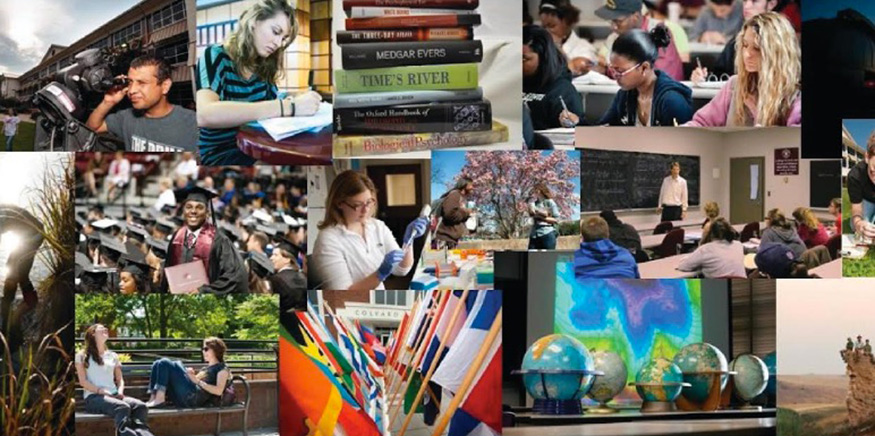MSU College of Arts and Sciences strategic research initiatives address change, racial inequality
Contact: Sarah Nicholas

STARKVILLE, Miss.—More than two dozen Mississippi State faculty and students within the College of Arts and Sciences are receiving funds this semester from strategic research initiatives, known as SRI, designed to enable research productivity and success.
The Faculty Seed Funds provide funding for research negatively impacted by COVID-19. Student Research and Scholarly Activity funds promote research at the undergraduate and graduate levels, and the new Race and Racism Research programs highlight research aimed at understanding and mitigating racial inequalities.
The competitive SRI funding programs increase capacity for research success in obtaining external competitive funding, expanding peer-reviewed publications and increasing Ph.D. production. Faculty proposals include funds up to $10,000 and student proposals include funds up to $5,000.
Giselle Thibaudeau, CAS associate dean of research, said the programs assist faculty and students “even in light of these challenging times when many efforts have been put on hold and negatively impacted by events beyond our control.”

“I am very happy and appreciative for these funding opportunities made possible through the generosity of the College of Arts and Sciences Deans’ Office and the Arts and Sciences Advisory Board. I am also extremely proud of the efforts, resilience and world-class scholarly output of our faculty and students,” Thibaudeau said. “I look forward to seeing the impacts the SRI 2021 program awards will have on our units, the university, the disciplines, the nation and even the globe.”
For 2021, CAS sponsored the newest SRI program, the Race and Racism Research funding program, to provide funds aiding in research projects and scholarship focused on the study of race and racism to understand the causes of racial inequality and assist in finding research-based solutions to dismantle racial injustice.
Faculty receiving funding for Race and Racism Research include:
Shawn Lambert and co-investigator Anna Grace Tribble, both with the Department of Anthropology and Middle Eastern Cultures. Lambert and Tribble will develop a special topics anthropology Choctaw culture course through an interdisciplinary collaboration between scholars across MSU and the Mississippi Band of Choctaw Indians. The project will address the sense of erasure those from the Choctaw community and within the K-12 and university setting experience regarding education on their own histories, heritage and identity.
Gabe Miller, Department of Sociology. Miller will investigate the role of racism in LGBT intersectional health disparities by launching the Survey on Intersectional Health Disparities to collect quantitative information on health outcomes and behaviors, demographics and experiences with multiple forms of discrimination including racism, homophobia, biphobia and transphobia.
Dhanashree Thorat, Department of English, and co-investigator Jeremy Montgomery, Department of History. Thorat and Montgomery will complete a digital humanities project to document community participation in the 2020 Starkville Black Lives Matter march and local activism. The project will highlight the continuous histories of civil rights activism in Mississippi.
Recognizing the need to help support faculty-mentored research and scholarship opportunities for students, the Student Research and Scholarly Activity funding, or SRSA, is designed to help students acquire data for peer-reviewed publications, other scholarly work, fellowship opportunities, or competitive RFPS sought by the faculty mentor. The SRSA program highlights the role that both graduate and undergraduate students play in the research enterprise and empowers students to engage in the research during their academic careers.
Graduate students receiving SRSA funding include:
Suzanne Amadi, Department of Psychology: “The effect of pain tolerance feedback on human aggression.”
Allison Bohanon, Department of Geosciences: “Structural and Biological Analysis of Basalt Fractures in Steens Mountain, Oregon as an Earth Analogue for Mars.”
Courtney Bolstad, Department of Psychology: “Dog tired: Does daytime engagement with a pet dog impact owners’ sleep?”
Zachary Dykema, Department of Biological Sciences: “Correlating Caribbean rock iguana genotype and territory quality using fecal environmental DNA.”
Nicholas Engle Wrye, Department of Biological Sciences: “Investigating conserved floral scent as a driver of hybridization.”
Chathuri Gamlath Mohottige, Department of Chemistry: “Effects of biochar on mycorrhizal fungi metabolism.”
Angel Jimenez, Department of Geosciences: “Immobilization of Uranium by Calcium Phosphate Minerals.”
Abby Jones, Department of Biological Sciences: “Linking Scavengers to Greenhouse Gas Emissions after Mass Mortality Events.”
Blaklie Mitchell, Department of Biological Sciences: “Investigating the Influence of Hybridization on Fitness Among Iguana delicatissima.”
Keri Porter, Department of Anthropology and Middle Eastern Cultures: “The Application of Photogrammetry for the Recording and Analysis of Antemortem Cranial Depression Fractures.”
Ketki Shelar, Department of Chemistry: “A Modular Approach to Novel Corannulene-derived Novel Semifluorinated Polymers for Optoelectronics Application.”
Max Wamsley, Department of Chemistry: “Towards Nanoscale Noninvasive Temperature Sensing.”
In addition to the above graduate students, one undergraduate senior is receiving SRSA funding:
Henry Reynolds, Department of Chemistry: “Removing Nitrates and Phosphates from Runoff and Baseflow using Low-cost, Engineered Biochar.”
For Faculty Seed Funding, researchers included a COVID-19 impact statement for projects that were delayed, shutdown or otherwise impacted by COVID-19 and the resulting quarantine.
Faculty who received Faculty Seed Funding include:
Gombojav Ariunbold, Department of Physics and Astronomy: “A prototype of a novel spatiochemical imaging microscope.”
Sally Gray, Department of Classical and Modern Languages and Literatures: “Against Specialization: The Argument for Arts and Humanities in Science found in Critiques of Kant’s Aesthetics, Anthropology, and Scientific Theory by Kleist, Goethe, and Schiller.”
Sanna King, Department of Sociology: “Racial Injustice and Racial Apathy Among Youth and Young Adults in the American South and Southwest.”
Margaret Ralston, Department of Sociology: “Intergenerational Support and Well-being: The Impact of Place on Midlife and Older Adults’ Relationships.”
Jingyi “Catherine” Shi, Department of Mathematics and Statistics: “Developing Automatic Pipelines and Algorithms to Enable Rapid Learning of COVID-19 Publications.”
Vaidyanathan Sivaraman, Department of Mathematics and Statistics: “Pure meets applied: Graph theory in network science.”
Kun Wang, Department of Physics and Astronomy: “Probing plasmon-assisted synthesis reactions one molecule at a time.”
MSU’s College of Arts and Sciences includes more than 5,200 students, 323 full-time faculty members, nine doctoral programs, 15 master’s programs, and 27 undergraduate academic majors offered in 14 departments. MSU is classified by the Carnegie Classification of Institutions of Higher Education as an R-1 “Very High Research Activity” doctoral university, the highest level of research activity in the country. MSU is one of only 120 schools to hold the designation. For more details about the College of Arts and Sciences, visit www.cas.msstate.edu.
MSU is Mississippi’s leading university, available online at www.msstate.edu.